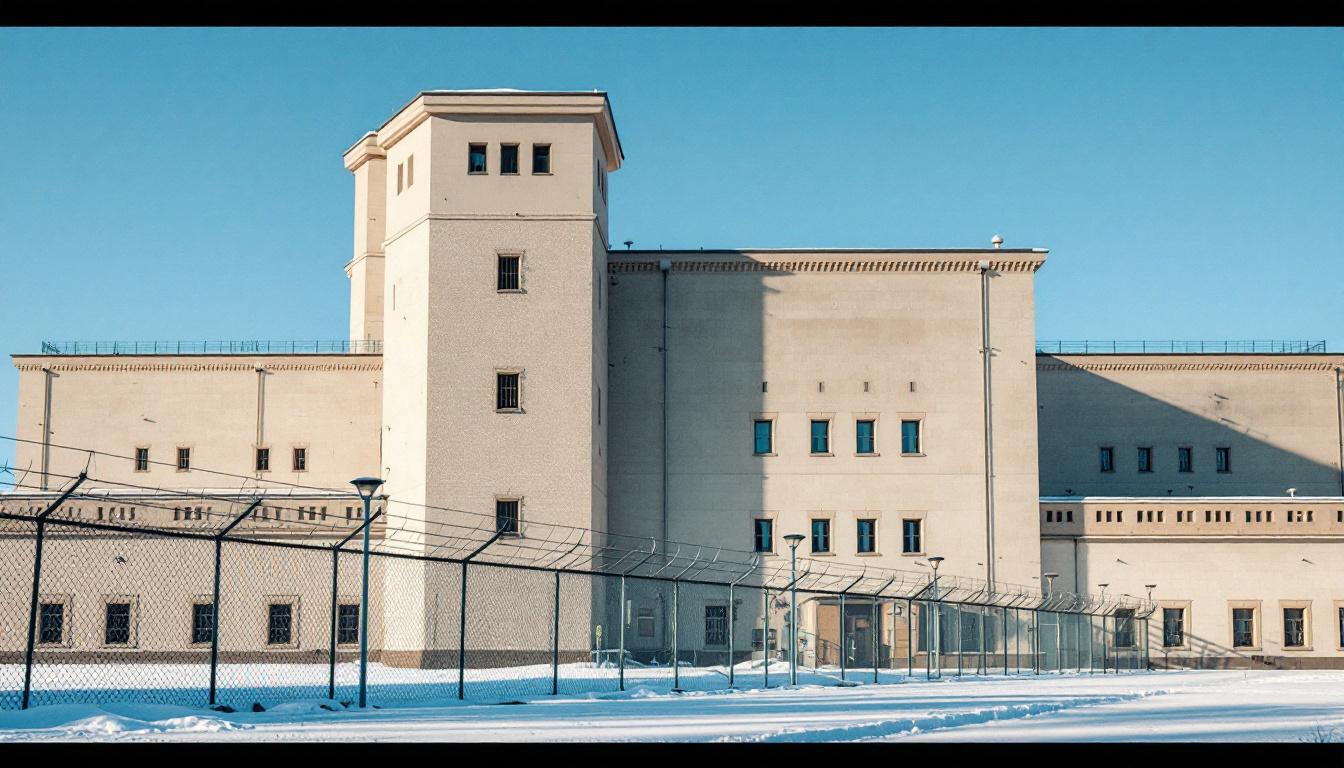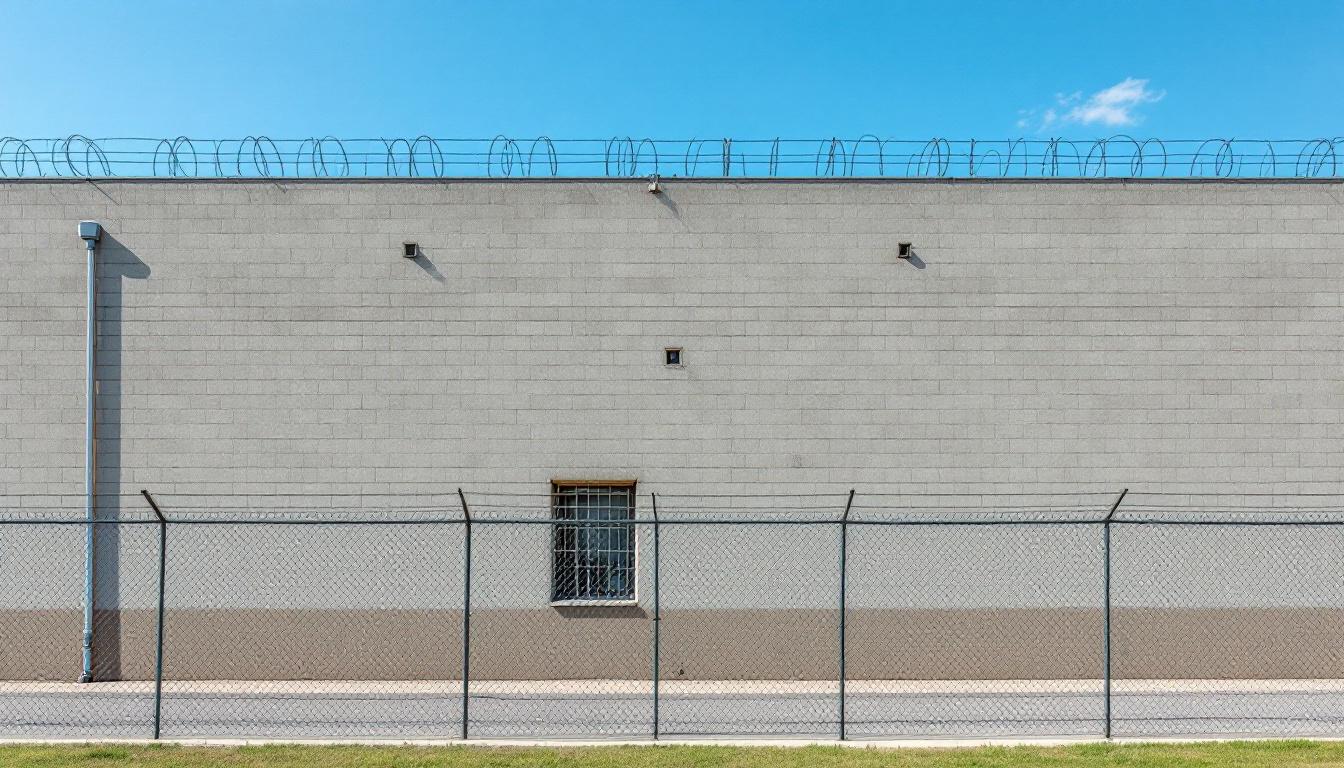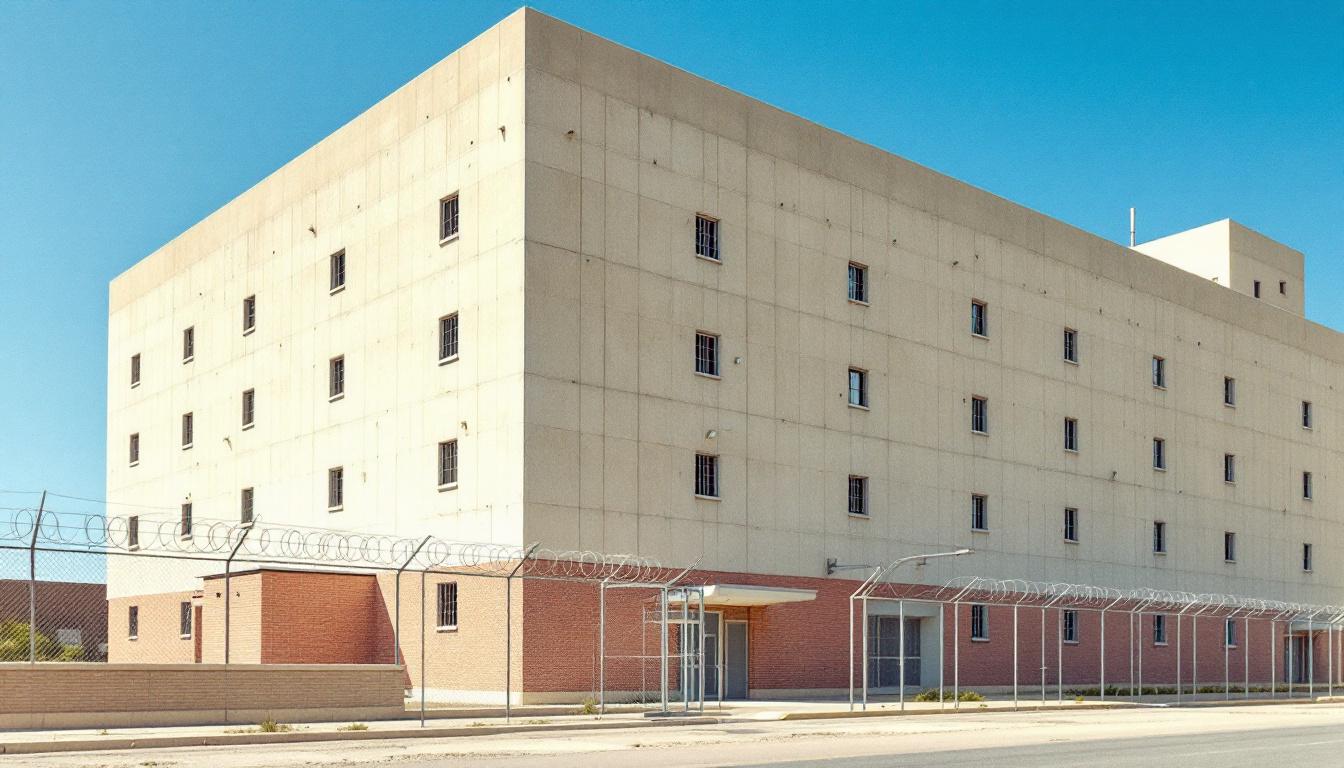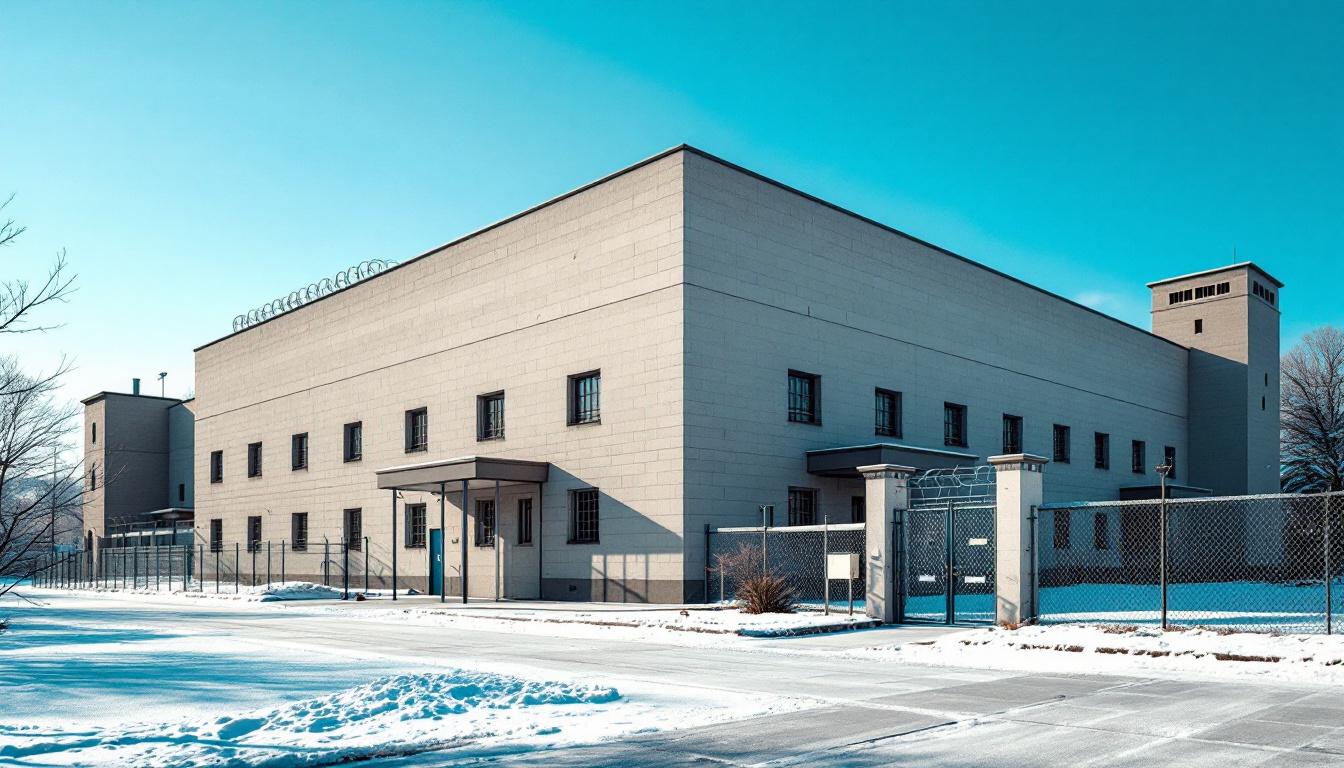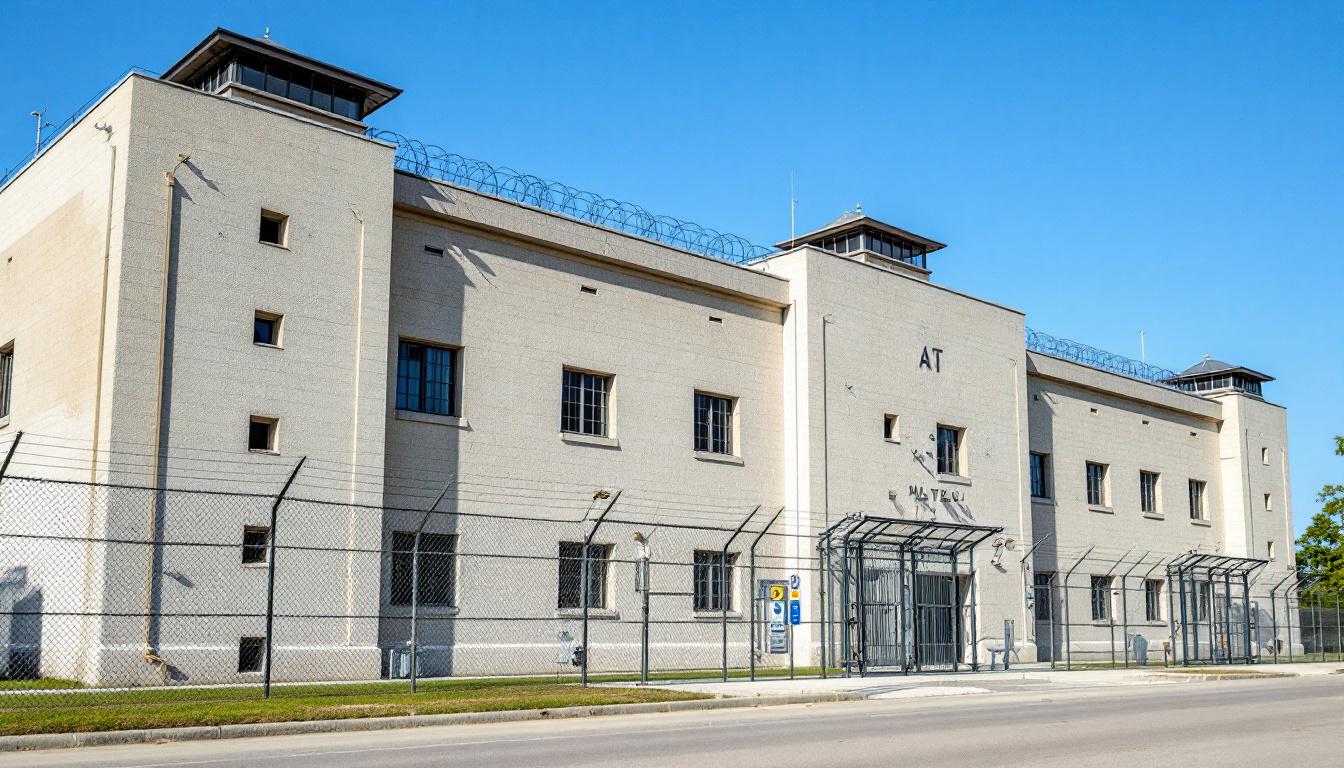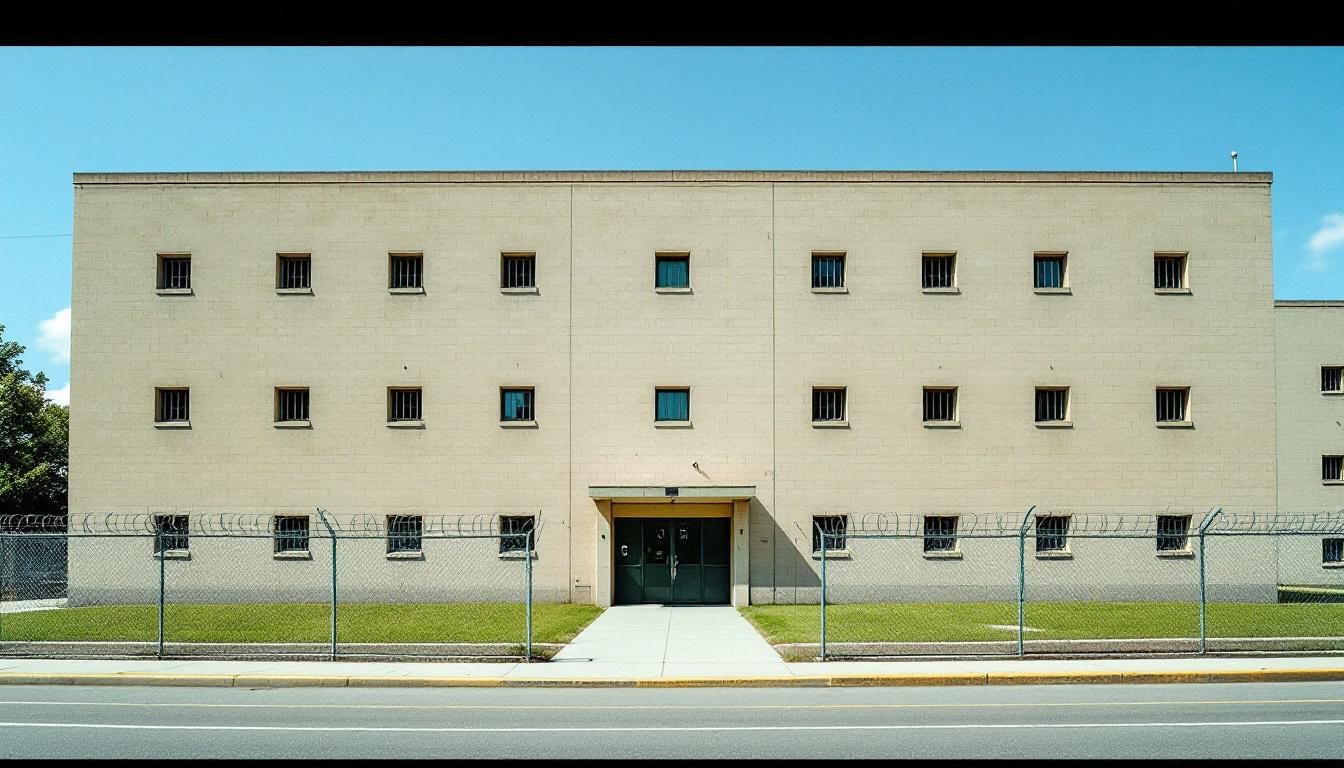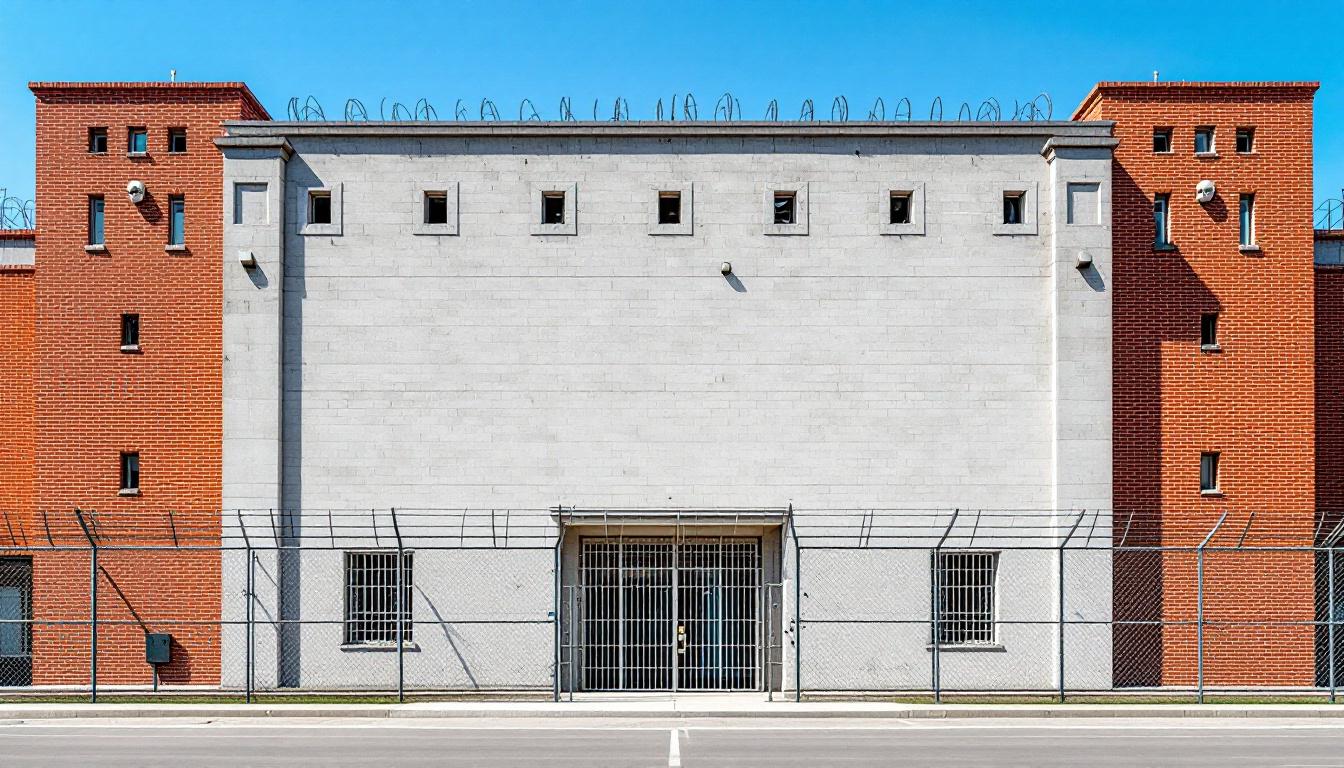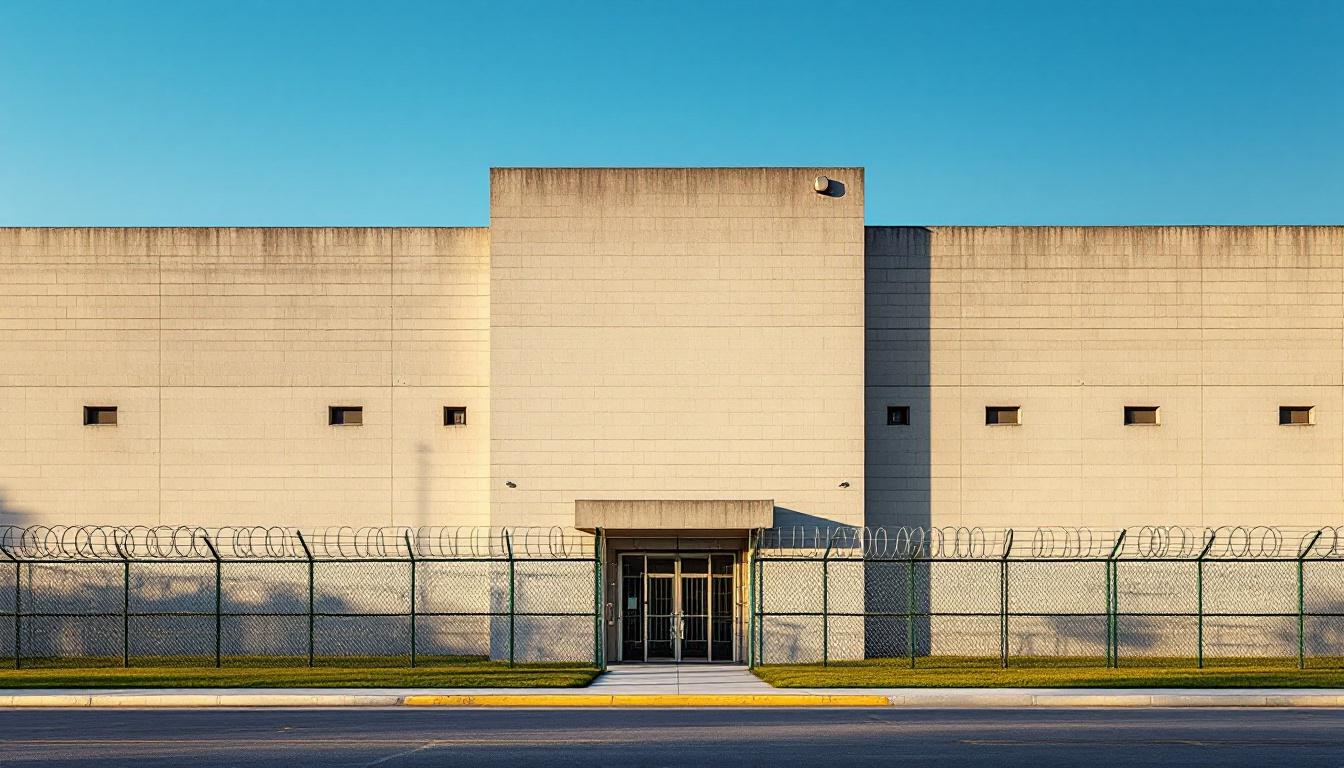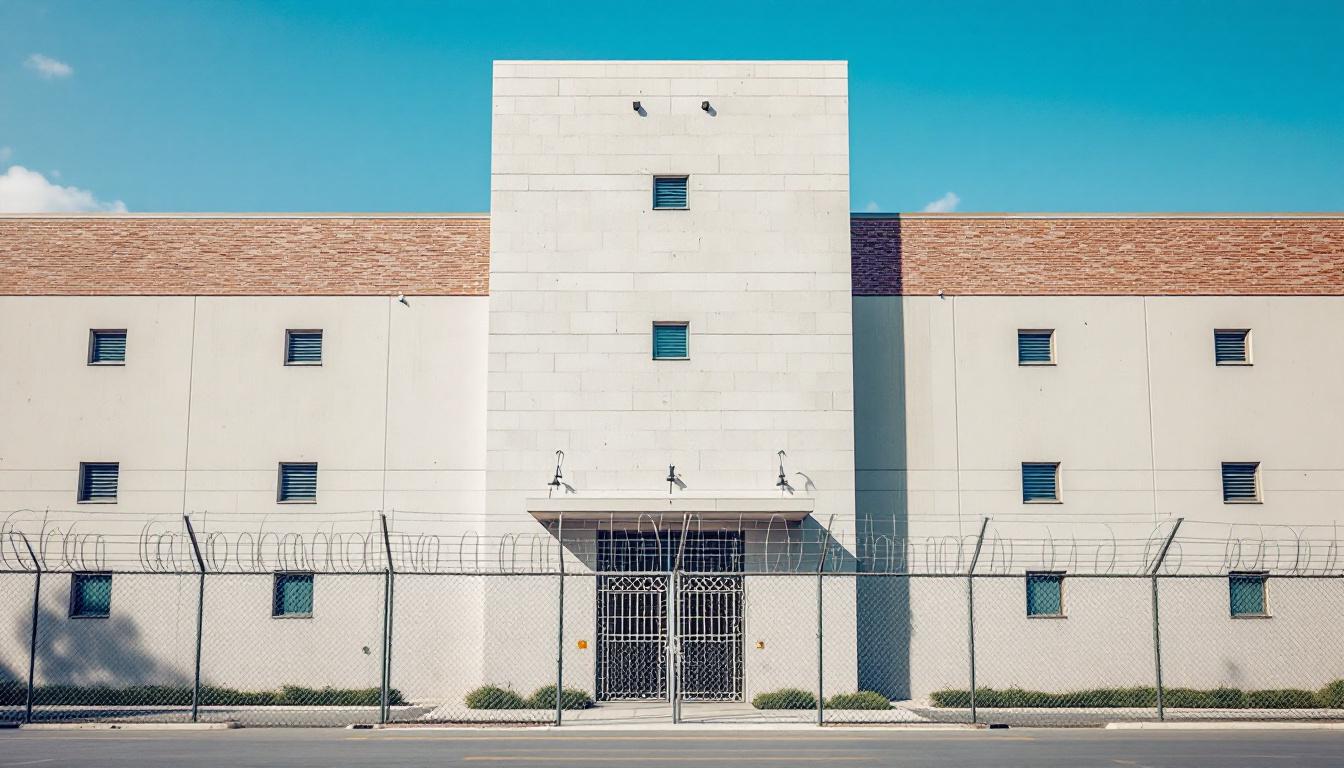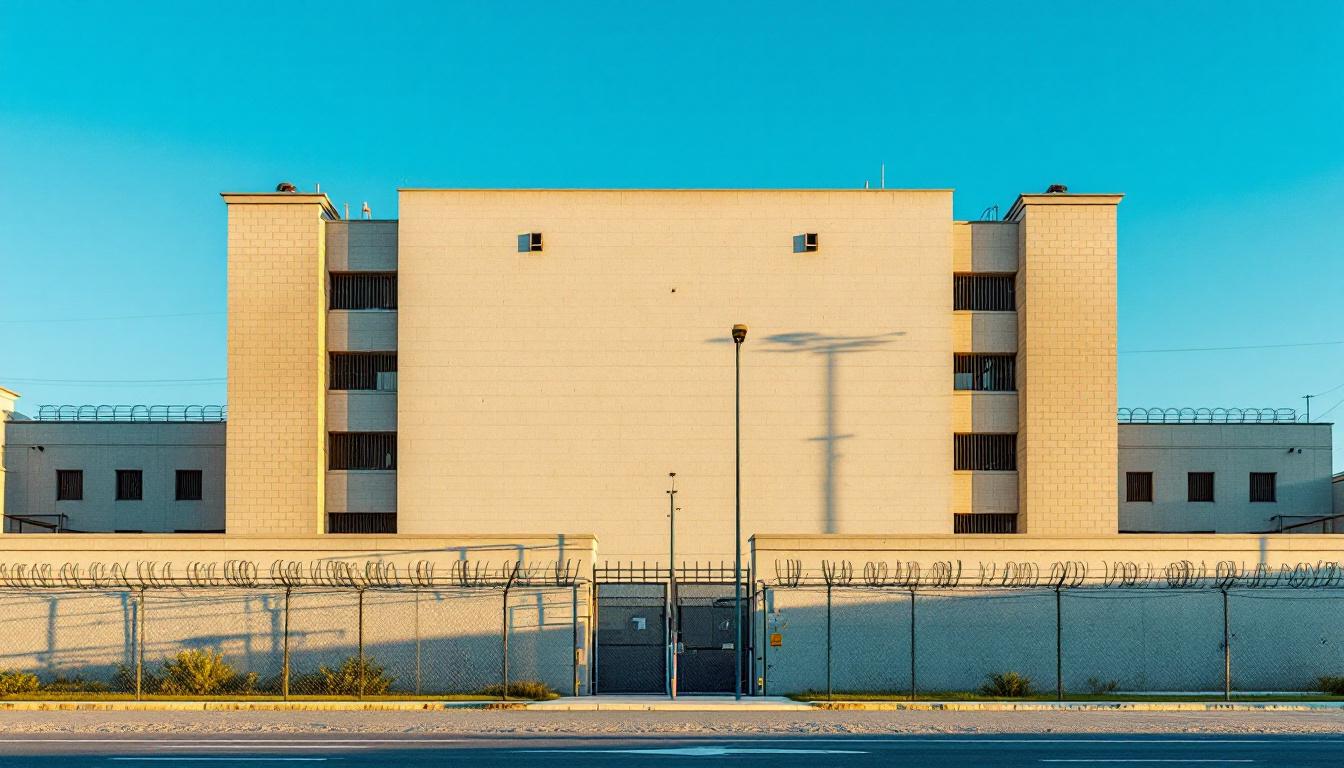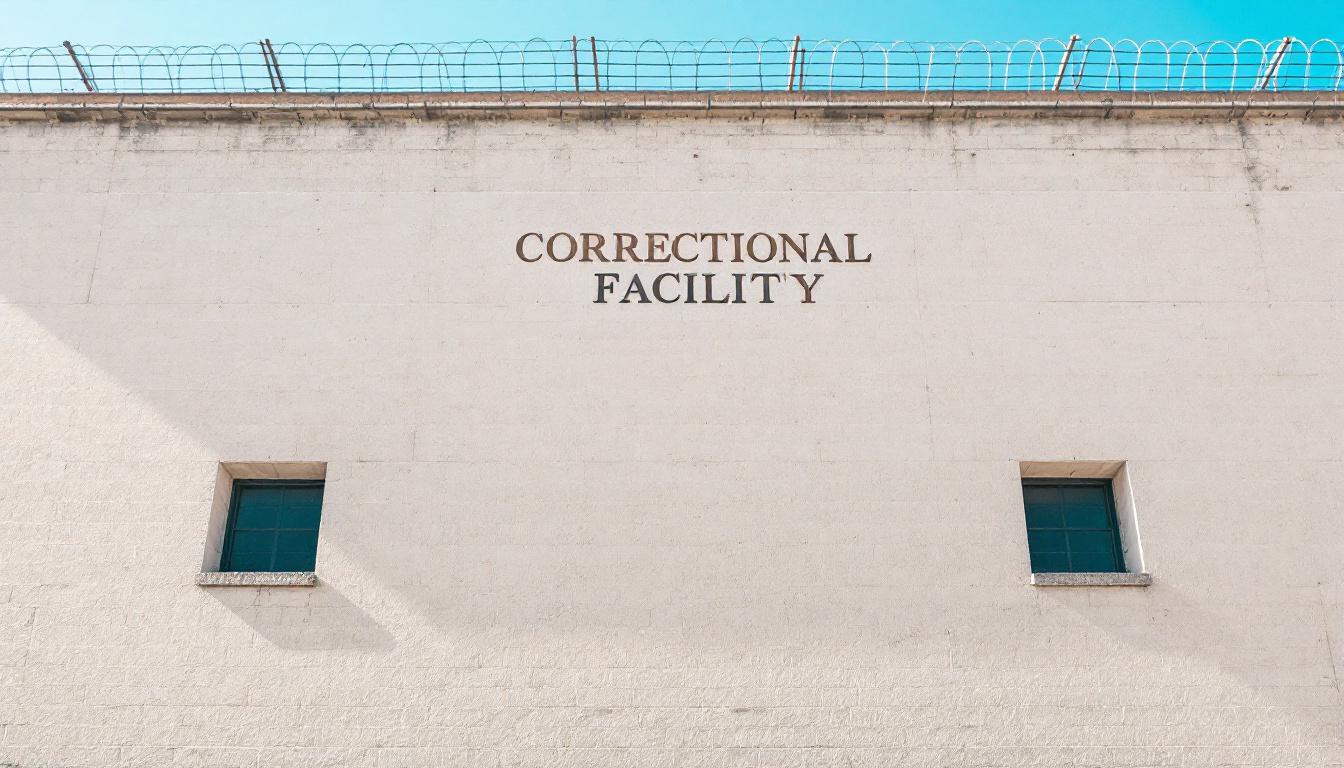
Quick Navigation
How to contact an inmate at Arizona State Prison Complex - Douglas
This comprehensive guide will walk you through how to connect with an inmate at Arizona State Prison Complex - Douglas. Follow the steps below to find an inmate and send letters and photos:
- Search for the inmate using our search tool below
- Create your account or log in to Penmate
- Write your message (up to 6,000 characters)
- Send instantly - inmates receive printed copies daily
Find an Inmate
Search for an inmate to start communicating today
Tip: You can search by first name, last name, or inmate ID number
To contact a person at Arizona State Prison Complex - Douglas start by searching for the person on the facility website. Perform a search by following these steps:
- Step 1: Enter their first name and last name into the search form and click "Search"
- Step 2: Locate their inmate record
- Step 3: Write down their Inmate ID and any housing information provided
Important! Be sure to enter the person's full name. Nicknames should not be used.
How to Send Messages to Inmates

You can use your phone or computer to send emails, letters, and photos to an inmate. Messages are sent electronically to inmate tablets or kiosks at the facility. If you would like to send a message, start by searching for an inmate at Arizona State Prison Complex - Douglas.
Sending Photos and Postcards

A great way to send love and support to a loved one at Arizona State Prison Complex - Douglas is to send photos and postcards. It only takes a few minutes to send photos from your phone and it makes a huge difference. You can also mail postcards with words of support and inspiration, or design your own postcard for special moments like birthdays and holidays.
Important! Be sure not to send any explicit photos or they may not be approved by the facility. You can also use a photo printing app like Penmate to make sure your photos are printed at the correct size (4x6 or 3x5) and are mailed according to the rules and regulations of Arizona State Prison Complex - Douglas.
Frequently asked questions about Arizona State Prison Complex - Douglas
-
How long does it take to deliver a message?
If you're sending an email message your letter is usually delivered within 24-48 hours. For messages sent via mail you should expect delivery within 3-7 days. All messages will need be approved by Arizona State Prison Complex - Douglas.
-
How much does it cost to send a message to Arizona State Prison Complex - Douglas?
You can send a message free using your phone or mail a message via USPS for the price of a $0.60 stamp and envelope. You can also purchase credits or e-stamps from services starting at $1.99.
-
What services can I use to contact an inmate at Arizona State Prison Complex - Douglas?
Penmate
You can use Penmate to send letters and photos to an inmate from your phone. It's an easy way to stay in touch during your loved one's incarceration. Use the inmate locator to find an inmate's location and contact information, then you can send messages within a few minutes.
Securus messaging
Securus may be another option for communicating with an inmate at Arizona State Prison Complex - Douglas. You can create a friends and family account and purchase credits to send messages. All messages will be reviewed and must be approved by the facility.
JPay
Some county jails and state prisons may support sending messages with JPay. You must register an account with the system, find your loved one, and purchase stamps to send messages. For some locations you can also attach photos.
Smart Jail Mail
You may also check if Smart Jail Mail is available at Arizona State Prison Complex - Douglas. Smart Jail Mail is operated by Smart Communications and has contracted with some state and county jails. After purchasing credits, your messages and photos are sent to the facility, printed out, and then handed out to your loved one.
-
What is the mailing address of Arizona State Prison Complex - Douglas?
Mailing address:
Arizona State Prison Complex - Douglas
6911 N Bdi Blvd
Douglas, AZ 85607
Phone: (520) 364-7521Business hours:
- Monday: 9:00 AM – 8:00 PM
- Tuesday: 9:00 AM – 8:00 PM
- Wednesday: 9:00 AM – 8:00 PM
- Thursday: 9:00 AM – 8:00 PM
- Friday: 9:00 AM – 8:00 PM
- Saturday: 9:00 AM – 8:00 PM
- Sunday: 9:00 AM – 8:00 PM
-
What are the visiting hours at Arizona State Prison Complex - Douglas?
Visiting hours at Arizona State Prison Complex - Douglas vary by housing unit and security level. Generally, visits are scheduled on weekends and holidays, with some facilities offering weekday visits. Contact the facility directly at (520) 364-7521 or check their website for the current visiting schedule. Visits typically last 30-60 minutes and must be scheduled in advance.
-
What items are prohibited when sending mail to Arizona State Prison Complex - Douglas?
Prohibited items typically include: cash, personal checks, stamps, stickers, glitter, glue, tape, staples, paperclips, polaroid photos, musical or blank greeting cards, hardcover books, magazines with staples, and any items containing metal or electronics. Only send letters on plain white paper with blue or black ink. Photos must be printed on regular photo paper (no Polaroids). Always check with Arizona State Prison Complex - Douglas for their specific mail policies.
-
How do I send money to an inmate at Arizona State Prison Complex - Douglas?
You can send money to an inmate at Arizona State Prison Complex - Douglas through several methods: 1) Online using JPay, Access Corrections, or the facility's approved vendor, 2) Money orders mailed directly to the facility with the inmate's name and ID number, 3) Kiosks located in the facility lobby, or 4) Over the phone using a credit or debit card. Fees vary by method, typically ranging from $2.95 to $11.95 per transaction.
-
Can I schedule a video visit with an inmate at Arizona State Prison Complex - Douglas?
Many facilities now offer video visitation as an alternative to in-person visits. At Arizona State Prison Complex - Douglas, video visits may be available through services like Penmate, Securus Video Connect, GTL, or ICSolutions. Video visits typically cost $10-20 for 20-30 minutes and must be scheduled in advance. You'll need a computer or smartphone with a camera and reliable internet connection. Contact the facility for their specific video visitation policies and approved vendors.
-
What identification do I need to visit an inmate at Arizona State Prison Complex - Douglas?
All visitors must present valid government-issued photo identification such as a driver's license, state ID, passport, or military ID. Minors must be accompanied by a parent or legal guardian who can provide the minor's birth certificate. Some facilities require visitors to be on the inmate's approved visitation list, which may require a background check. Contact Arizona State Prison Complex - Douglas for specific ID requirements and visitor approval procedures.
-
How can I find out an inmate's release date?
To find an inmate's release date at Arizona State Prison Complex - Douglas, you can: 1) Use the online inmate search tool if available, 2) Call the facility's records department, 3) Contact the inmate's case manager or counselor, or 4) Have the inmate provide this information during a call or visit. For privacy reasons, some facilities only release this information to immediate family members.
Facility Overview
Contact Information
Arizona State Prison Complex - Douglas6911 N Bdi Blvd
Douglas, AZ 85607
Phone: (520) 364-7521

About Arizona State Prison Complex - Douglas
Educational programming, vocational training, and therapeutic services form the cornerstone of daily operations at this Arizona Department of Corrections facility, where individuals work toward developing skills that support successful community reintegration. ASPC - Douglas provides a structured environment focused on rehabilitation outcomes, offering participants access to programs designed to address underlying factors that may have contributed to their incarceration. The facility typically maintains educational opportunities ranging from basic literacy instruction to GED preparation, while vocational workshops may include training in trades that align with employment opportunities available upon release.
Located in the southeastern Arizona community of Douglas, this AZ correctional facility operates within the broader framework of the state's correctional system, contributing to public safety through evidence-based rehabilitation approaches. The mountain region setting provides a backdrop for programming that often emphasizes personal responsibility and community connection. Individuals services at the facility generally include mental health support, substance abuse counseling, and life skills development, all aimed at reducing recidivism and supporting positive outcomes for participants and their families.
The facility's approach to correctional programming recognizes that meaningful rehabilitation requires addressing multiple aspects of an individual's circumstances and needs. Through partnerships with community organizations and educational institutions, participants may access resources that extend beyond their period of incarceration, creating pathways for continued growth and stability. This comprehensive model reflects the facility's commitment to serving both the immediate Douglas community and the broader goal of public safety through effective rehabilitation practices.
Programs & Services
The breadth of developmental opportunities at ASPC - Douglas reflects a comprehensive understanding that meaningful change requires multiple pathways for growth and rehabilitation. Rather than adopting a one-size-fits-all approach, the facility typically recognizes that individuals arrive with diverse backgrounds, educational levels, and personal challenges that demand varied interventional strategies. This multifaceted philosophy ensures that participants can engage with opportunities that align with their specific needs while building the foundational skills necessary for successful community reintegration.
Educational advancement serves as a cornerstone of the facility's offerings, with education programs often encompassing literacy development, high school equivalency preparation, and various academic enrichment opportunities. These educational initiatives may provide individuals with the academic credentials and critical thinking skills essential for post-release employment and personal development. Moreover, vocational training opportunities frequently complement academic pursuits, with specialized programs such as upholstery training offering hands-on skill development in marketable trades. Work programs within the facility often serve dual purposes, providing practical experience while contributing to institutional operations and individual responsibility development.
Therapeutic interventions address the underlying factors that may have contributed to criminal behavior, with substance abuse treatment programs typically offering evidence-based approaches to addiction recovery and relapse prevention. Additionally, specialized therapeutic opportunities such as sex offender treatment may provide intensive, structured interventions designed to address specific behavioral patterns and reduce recidivism risk. These therapeutic services often operate alongside broader support systems that recognize the complex interplay between mental health, substance use, and criminal behavior, creating a comprehensive framework for addressing the multifaceted challenges individuals face during their incarceration and preparation for release.
Daily Life & Visitation
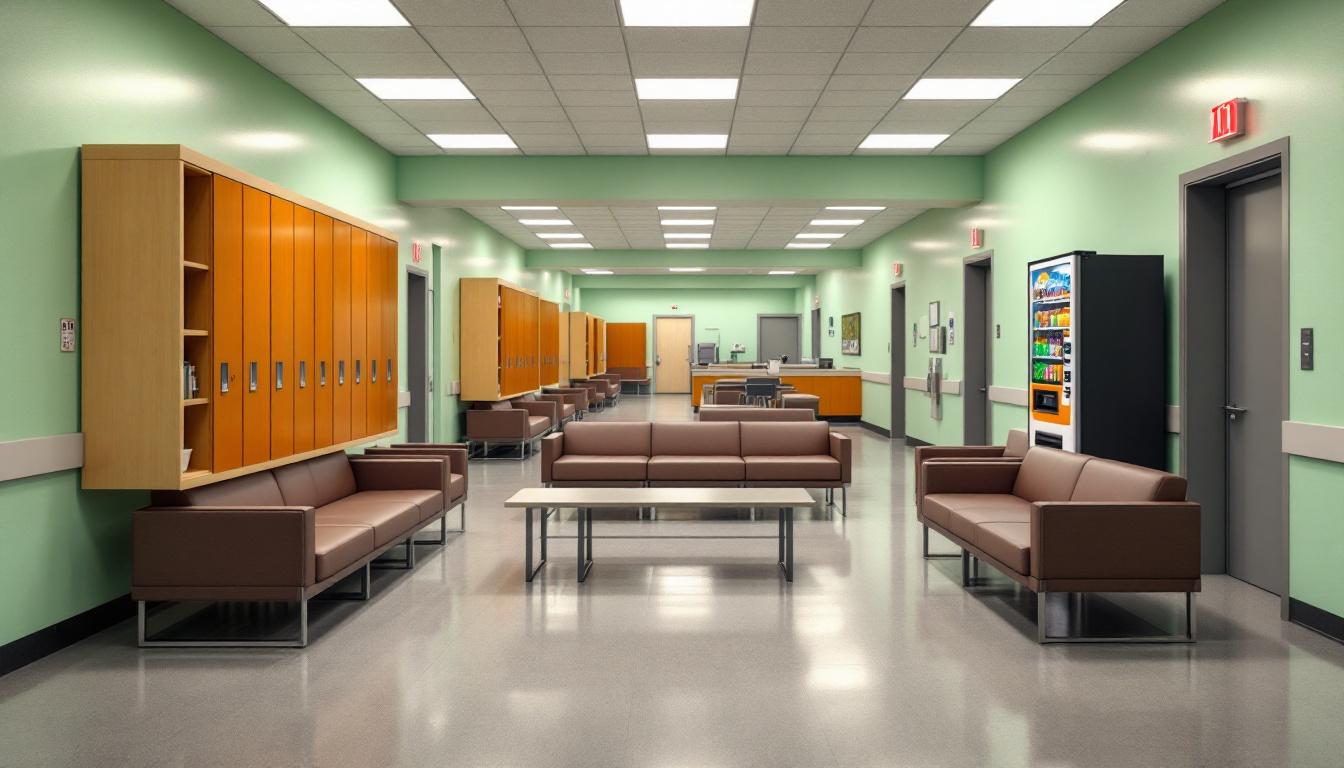
The rhythmic sound of cell doors opening marks the beginning of another structured day, as individuals at ASPC - Douglas currently follow a carefully orchestrated routine that continues to balance security requirements with opportunities for personal development and rehabilitation. The facility generally operates on a schedule that typically includes designated times for meals, work assignments, educational programming, and recreation, with each day usually beginning in the early morning hours when individuals prepare for their various responsibilities and activities.
Living accommodations within the facility vary depending on security classification and housing unit assignment, with individuals typically residing in cells or dormitory-style arrangements that include basic furnishings and personal storage space. Moreover, the dining experience generally involves scheduled meal times in communal areas, where individuals receive nutritionally planned meals that often accommodate dietary restrictions and medical needs. The commissary system usually allows individuals to purchase additional food items, hygiene products, and other approved personal items using funds from their institutional accounts, providing some degree of personal choice within the structured environment.
Recreational opportunities typically offer structured physical activities, including access to exercise equipment and outdoor recreation areas, whereas educational and vocational programs may provide pathways for skill development and personal growth. The facility generally maintains visitation policies that allow family members and approved visitors to maintain connections through scheduled visits, while communication options usually include monitored telephone calls and correspondence. Work assignments within the facility often include maintenance duties, food service, laundry operations, and other institutional jobs that help individuals develop work skills while contributing to facility operations, and structured programming schedules typically incorporate counseling sessions, educational classes, and other rehabilitative activities designed to support successful reintegration into the community.
Ready to Connect?
Start communicating with your loved one today
Search for an Inmate
